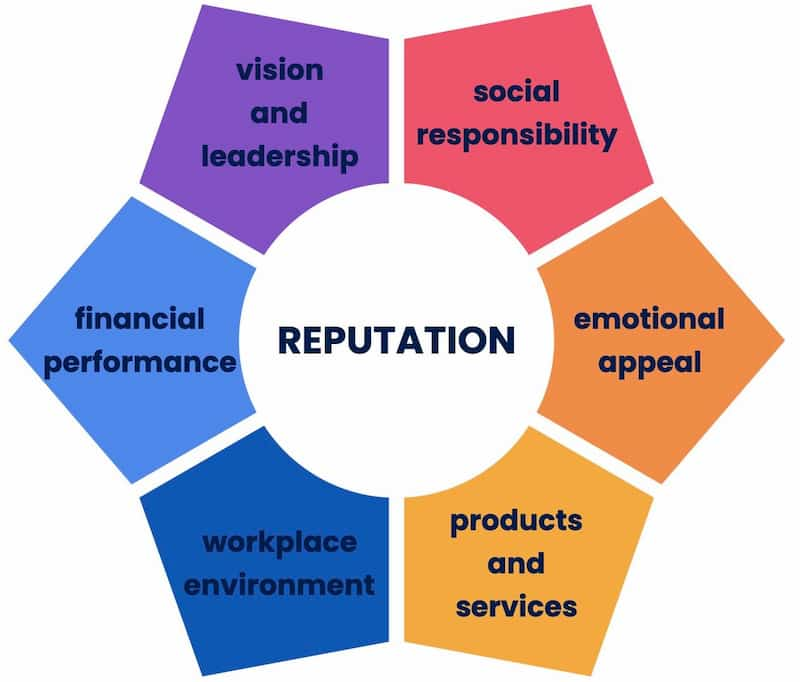What is the Reputation of This Company?
When evaluating a business, service, or employer, understanding its reputation is crucial. A company’s reputation affects customer trust, employee retention, and brand value. In the digital age, a company’s credibility is shaped by online reviews, social media presence, and customer feedback.
But how do you determine whether a company has a good or bad reputation? In this article, we’ll explore how to assess a company’s reputation, the best tools for checking credibility, and what factors influence public perception.

Why Does a Company’s Reputation Matter?
A strong reputation is one of a company’s most valuable assets. It influences how customers, employees, and investors perceive the business.
The Benefits of a Good Reputation
- Attracts More Customers – People prefer to buy from brands they trust.
- Builds Employee Loyalty – A positive work environment helps with employee retention.
- Increases Revenue – Companies with strong reputations tend to perform better financially.
- Boosts SEO Rankings – Positive brand mentions improve search engine rankings and visibility.
The Risks of a Bad Reputation
- Loss of Trust – Negative reviews can drive potential customers away.
- Difficulty in Hiring – A bad reputation can make it hard to attract top talent.
- Legal and PR Issues – Scandals and controversies can lead to lawsuits and PR crises.
Understanding a company’s reputation helps in making informed decisions, whether as a consumer, job seeker, or investor.
How to Check a Company’s Reputation?
There are multiple ways to assess a company’s credibility and trustworthiness. Below are the best sources for gathering insights.
1. Online Reviews and Ratings
Customer and employee reviews are one of the most transparent ways to assess a company’s reputation. Websites like Google Reviews, Trustpilot, Glassdoor, and Better Business Bureau (BBB) provide real user feedback.
How to Find Online Reviews?
- Search for the company name + “reviews” on Google.
- Visit trusted review platforms like Glassdoor for employee reviews.
- Check customer ratings on Trustpilot.
- Use BBB to verify business credibility.
Tip: Always read multiple reviews to get a balanced perspective instead of relying on just one or two opinions.
2. Social Media Presence
A company’s social media activity can tell you a lot about how they interact with customers and handle feedback.
Where to Check?
- Facebook & Twitter – Look for customer comments and company responses.
- LinkedIn – See how the company presents itself professionally.
- Instagram & TikTok – Evaluate branding and customer engagement.
Red Flag: If a company ignores complaints or deletes negative comments, it might be hiding bad reviews.
3. News & Press Coverage
Checking news articles, press releases, and blog posts can help you see how the media perceives a company.
How to Check?
- Use Google News to search for recent news about the company.
- Look at press releases on the company’s website.
- Read industry blogs to get expert opinions.

Tip: If a company frequently appears in scandals or lawsuits, it’s a warning sign of a bad reputation.
4. Employee Testimonials & Glassdoor Reviews
If you’re researching a company as a job seeker, checking employee reviews on Glassdoor or Indeed is essential.
What to Look For?
✅ Work-life balance – Do employees complain about long hours?
✅ Leadership – Are the executives respected by their staff?
✅ Salary & Benefits – Does the company offer competitive compensation?
Example: A company with multiple complaints about toxic work culture may not be a good place to work.
5. Better Business Bureau (BBB) & Trustpilot
For business credibility, BBB and Trustpilot are excellent resources.
- BBB Ratings show whether a company has resolved customer complaints.
- Trustpilot Reviews provide insights into product and service quality.

Did You Know? Companies with an A+ rating on BBB are generally more trustworthy.
Signs of a Positive Reputation
A company with a strong reputation usually exhibits these qualities:
- Consistently high reviews on multiple platforms.
- Engages with customers and responds to concerns.
- Appears in positive news coverage.
- Has a strong, professional online presence.
- Offers great customer service.
Example: Apple and Microsoft consistently rank among the most reputable companies due to their high customer satisfaction and strong leadership.
Signs of a Negative Reputation
Be cautious if you notice these red flags:
- Many unresolved complaints on BBB or Trustpilot.
- Bad employee reviews about toxic work environments.
- Negative press coverage about scandals or lawsuits.
- No online presence or hiding customer feedback.
Warning: If a company has overwhelmingly bad reviews, it may not be worth engaging with.
How to Improve a Company’s Reputation?
If you’re a business owner, here’s how to boost your brand’s reputation:
1. Provide Excellent Customer Service
- Respond quickly to customer complaints and feedback.
- Offer refunds or solutions to unhappy customers.
2. Encourage Honest Reviews
- Ask satisfied customers to leave positive reviews.
- Avoid paying for fake reviews, as it can damage credibility.
3. Maintain a Strong Online Presence
- Post regular updates on social media.
- Engage with followers and address concerns professionally.
4. Monitor & Manage Your Online Reputation
- Use tools like Google Alerts to track mentions of your company.
- Address negative news or complaints proactively.
Want to automate your brand’s reputation management? Check out DUYTHIN.DIGITAL for tools to streamline social media, SEO, and online engagement.
Final Thoughts
A company’s reputation can make or break its success. Whether you’re a consumer, job seeker, or investor, researching a company’s credibility is essential before making any commitments.
By checking Google Reviews, social media, news coverage, and employee feedback, you can get a clear picture of a company’s trustworthiness.
If you’re looking for automation tools to help manage your business reputation, visit DUYTHIN.DIGITAL today!
FAQs
Q1: How do I check if a company is trustworthy?
A: Look at Google Reviews, Trustpilot, Glassdoor, and BBB ratings.
Q2: Can companies remove negative reviews?
A: Some platforms allow dispute processes, but authentic reviews cannot be removed.
Q3: What should I do if I find fake reviews?
A: Report them to the platform or look for patterns of fake reviews before making a decision.
Q4: Does social media impact a company’s reputation?
A: Yes, a company’s social media engagement and customer responses influence its reputation.
Ready to build a stronger online presence? Visit DUYTHIN.DIGITAL and start automating your business today!
